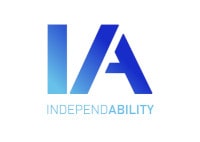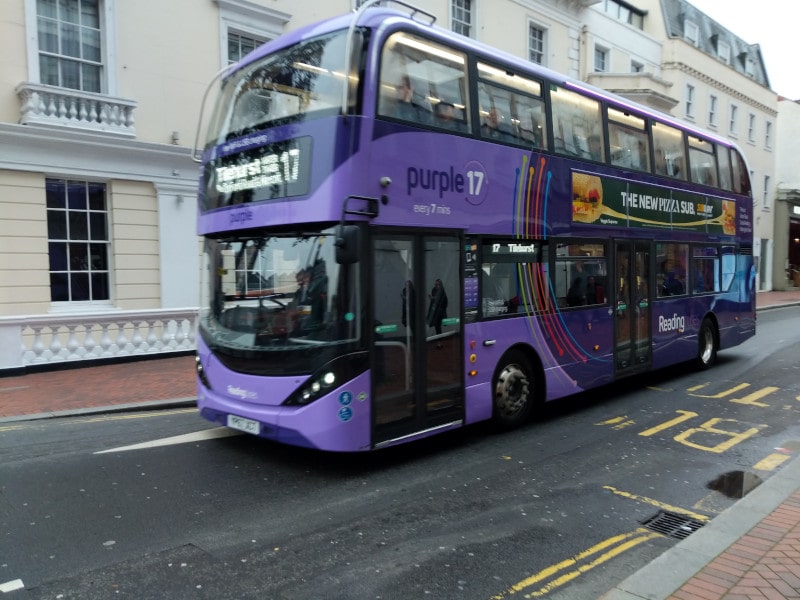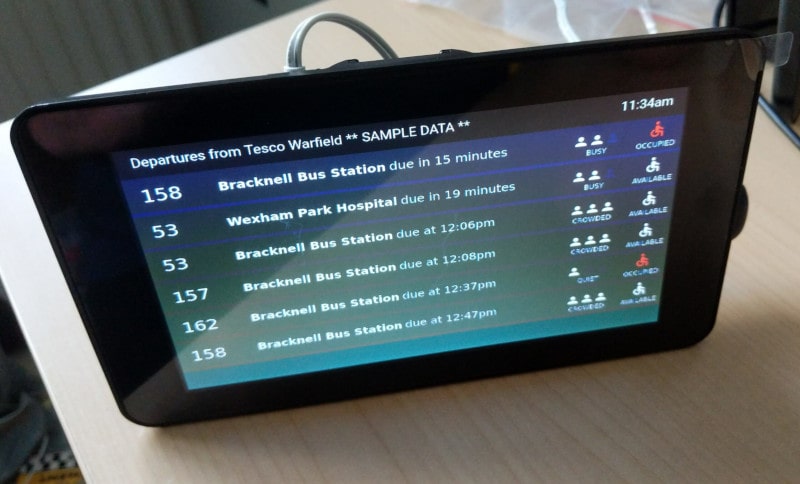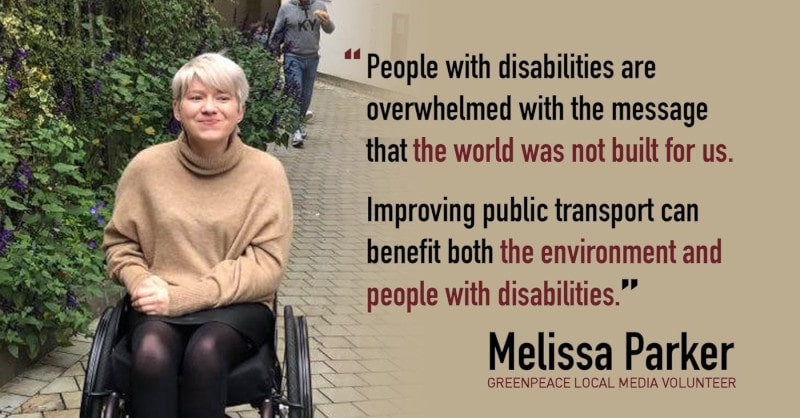
Rory Maxwell, lead partner on Ethos InDependAbility explains the need for data technology to help vulnerable groups.
In a recent report on disabled passengers’ rights released by the environmental campaigning group Greenpeace, disabled transport activist Melissa Parker said:
“People with disabilities are overwhelmed with the message that the world was not built for us.”
Greenpeace’s recommendation to travel operators was to provide:
“Travel information in formats that all passengers can readily access and understand – before and during a journey.”
The good news is data tech pioneers are urgently working to meet this need. Here at Ethos Place we have recently trialled a clever system on buses which we call InDependAbility. It uses a system of sensors which measure real-time occupancy of the buses, including whether wheelchair space is being used, and passes that information to a tablet when buses are full.
Our insightful project proves that this simple combination of data and devices can provide a bit of a magic key to unlock the passenger conundrum: “Will I be left sitting at the bus stop because there is no space for me to get on the bus with my mobility aids?” It’s hard to imagine a more terrible and dispiriting prospect for anyone for whom travel is a challenge to start with.

InDependAbility trialled in Berkshire in 2020 as part of a Thames Valley Berkshire Local Enterprise Partnership technology programme, supported by STANTEC. The need for solutions is stark: the UK’s population is aging, and an increasing number of people are living alone. There are over 11 million people with a limiting long-term illness, impairment, or disability of which 6% are children, 16% working age adults and 45% adults over State Pension age. Around a fifth of all disabled people report having difficulties in accessing transport.
At the same time, the resources available to local authorities have been under constant pressure. In its August 2020 report, ‘Living longer: implications of childlessness among tomorrow’s older population’ the Office of National Statistics noted:
“In the future, there will be more older people and a higher proportion of those will be childless. Because adult children are the most common providers of informal social care to their parents at older ages, this is likely to increase the demand for paid-for care.”
This growth in demand has been compounded by a fall in public spending on adult social care provision by 2.1% in real terms over the past decade. Dr Eleanor Roy health and social care policy manager at the Chartered Institute of Public Finance and Accountancy (CIPFA) noted in a November 2019 report;
“While it’s true that the service has been able to achieve efficiencies, it will not be able to maintain this over time. As the population continues to live longer in poor health, the forecast growth in demand poses a significant challenge for public spending.”
This combined challenge is driving a need for ever more innovative approaches. The experiment explored a new way to encourage vulnerable members of society to make greater use of public transport and reduce their dependence on council provided transport or expensive private hire transport such as taxis.
The first barrier for people to overcome when engaging with public transport is a lack of confidence. Preparatory research undertaken by the project back in 2019 showed that vulnerable users are often discouraged from using public transport because they cannot be confident that the journey will be acceptable to their specific needs. This could be anxiety based (being in a crowd); accessibility (lack of wheelchair space), not knowing if the bus will be on time or concerns about finding a seat.
While the Bracknell Forest area has an extensive public transport network, there are vulnerable members of the community who cannot easily, safely or confidently take advantage of it. This leads to isolation and also places a burden on social transport services. These services usually need to be booked in advance and are expensive for both the council and local charities to provide.
The Ethos Solution
InDependAbility is an Internet of Things (Internet of Things) project which provides real-time information on the availability of buses, and an assessment of how busy they are. Using non-intrusive sensors, the system discreetly detects passenger volumes and activity and displays the information on simple, clear screens, placed in user’s homes and public locations. Our pilot project focused on three routes, with the potential to extend further across the wider Bracknell bus network.
Through the duration of the project sensors counted 156,000 door operations, each time tracking the stop and the number of passengers on board.

Real-world benefits
The following groups could all benefit from this system.
Bus Companies:
Real-time bus data allows the operator to manage both vehicles and routes far more efficiently. There are many benefits to automatically counting passengers, from cost to operational reasons:
- Increase collected fare revenue. The increase in fare revenue produced by cross-checking passenger numbers with issued tickets can more than pay for the system.
- Save on training and employing people to manually count passengers.
- Obtain information for scheduling, forecasting and service-related decisions.
- Analyse key performance indicators like passengers per mile and cost per passenger. Record times spent waiting at each stop.
- Automatically generate reports.
- Monitor passenger numbers over time.
- Justify grants.
- Reliable data at a low cost, no matter how busy the service.
Local Authorities:
Central government and local authorities are spending large sums of money every year subsiding local bus companies*.
The data collected by our system provides up-to-date, reliable information to ensure that these subsidies are being spent supporting the right routes.
The Passenger: Ultimately InDependAbility is about making life easier for end users. It means that vulnerable adults can plan their journeys with confidence, safe in the knowledge that they can use the service without difficulty or compromise, and travel independently.
Sadly, the pandemic curtailed the ability of the team to test the system fully, but with vaccination advancing and pandemic restrictions lifting we can expect those who have been doubly restricted during lockdown will want to get out and about.
The future
Hardware, data and portable information displays have all been successfully tested within the local community, which has created valuable insights and commercial data for the bus provider. There is now potential to extend the solution throughout Berkshire and nationwide. Once isolation restrictions allow, it will also be possible to roll out InDependAbility in care homes, providing much needed support for this group to venture out into the world again.
We are seeking new collaborators for InDependAbility in the transport industry, adult social care services or mobility advocacy groups. Join us to make this project become a reality and help isolated people get out and about.
InDependAbility is an Ethos Place venture drawing on our expertise in Systems Integration, IoT, Open Data and complex business models. Ethos’s mission is to encourage and build collaborations between public, private, voluntary and charity organisations. Each project is designed to improve the everyday lives of people, in terms of their work, living and wellbeing.
Find out more at our project page https://www.ethosvo.org/project/independability/
*Central and local government support for local bus services consists of payments for supported services, Bus Service Operators Grant (BSOG) and concessionary travel reimbursement (effectively a subsidy to concessionary passengers). In 2018/19, estimated total net support paid in England was £2.07 billion, of which £0.98 billion or 47% was for concessionary travel. Source: Department for Transport: Annual bus statistic 2018/19
Find out more at our project page: https://www.ethosvo.org/project/independability/
*Central and local government support for local bus services consists of payments for supported services, Bus Service Operators Grant (BSOG) and concessionary travel reimbursement (effectively a subsidy to concessionary passengers). In 2018/19, estimated total net support paid in England was £2.07 billion, of which £0.98 billion or 47% was for concessionary travel. Source: Department for Transport: Annual bus statistic 2018/19
Rory Maxwell, lead partner on Ethos InDependAbility

